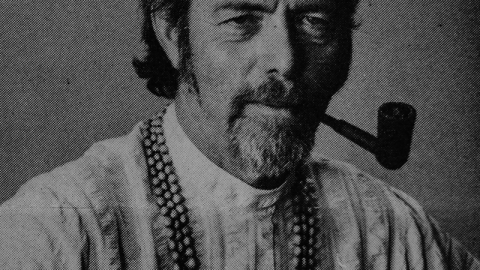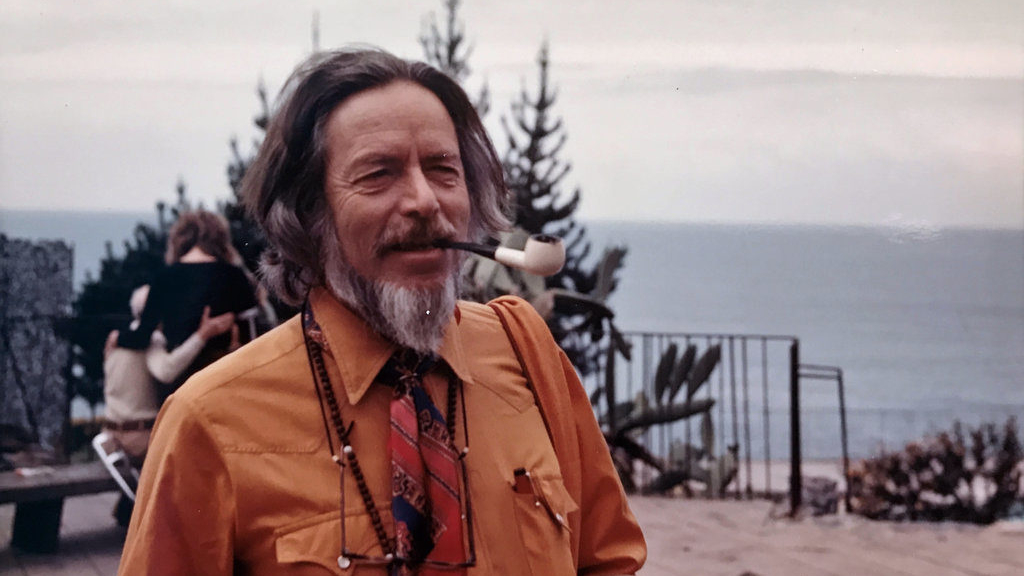Alan Watts quotes that will change your perspective on life

Photo courtesy of the Alan Watts Foundation
- Quotes on the immediacy of experience and life.
- Learn a Zen Koan or two and scramble rationalist thought.
- Ponder on the meaning of life with Alan Watts.
To this day, Alan Watts’s impactful and wise words circulate through the culture. We find them in the many books he left behind, countless lectures and pop-culture references galore. Renowned scholar and teacher, Joseph Campbell once said of him:
“The pomposities of prodigious learning could be undone by him with a turn of phrase. One stood before him, disarmed — and laughed at what had just been oneself.”
While it is no easy feat to distill the many whimsical phrases and knowledge Watts left behind, these quotes attempt to paint a broad picture of the Eastern scholar and philosopher-entertainer.
Here are some of the best Alan Watts quotes.
Alan Watts and Zen philosophy
What is Zen? Better to ask what isn’t Zen. Watts was one of a kind when it came to articulating what cannot be said. The ineffable comes down to an Earthly speakable form when Watts wanted to probe into the peculiarities of paradox.
Trying to define yourself is like trying to bite your own teeth.
“Zen… does not confuse spirituality with thinking about God while one is peeling potatoes. Zen spirituality is just to peel the potatoes.”
“I prefer not to translate the word Tao at all because to us Tao is a sort of nonsense syllable, indicating the mystery that we can never understand — the unity that underlies the opposites.”
“A proper exposition of Zen should tease us out of thought, and leave the mind like an open window instead of a panel of stained glass.”
Nirvana is right where you are, provided that you don’t object to it.
Alan Watts on God
Having obtained both a master’s degree in theology and becoming an Episcopal priest, Watts had a thoroughly rounded Christian education on the concept of God. With his boundless knowledge of Eastern traditions, mysticism and ancient history — Watts had a refreshingly comparative and unique take on the word and concept.
Buddhism has in it no idea of there being a moral law laid down by some kind of cosmic lawgiver.
“So in this idea, then, everybody is fundamentally the ultimate reality. Not God in a politically kingly sense, but God in the sense of being the self, the deep-down basic whatever there is. And you’re all that, only you’re pretending you’re not. And it’s perfectly O.K. to pretend you’re not, to be perfectly convinced, because this is the whole notion of drama.”
“How is it possible that a being with such sensitive jewels as the eyes, such enchanted musical instruments as the ears, and such fabulous arabesque of nerves as the brain can experience itself anything less than a god.”
Few of us have ever met an angel, and probably would not recognize it if we saw one, and our images of an impersonal or suprapersonal God are hopelessly subhuman — Jell-O, featureless light, homogenized space, or a whopping jolt of electricity.
Alan Watts on the meaning of life
Watts wasn’t afraid to tackle one of the great philosophical questions that has faced all of humankind since time immemorial. He answers it with irreverent wit and a life-affirming answer that’ll swing the worst of nihilists among us.
The meaning of life is just to be alive. It is so plain and so obvious and so simple. And yet, everybody rushes around in a great panic as if it were necessary to achieve something beyond themselves.
“The physical universe is basically playful. There’s no necessity for it whatsoever. It isn’t going anywhere; that is to say, it doesn’t have a destination that it ought to arrive at. But it is best understood by analogy to music, because music as an art form is essentially playful.”
“What happens if you know that there is nothing you can do to be better? It’s kind of a relief isn’t it? You say ‘Well, now what do I do?’ When you are freed from being out to improve yourself, your own nature will begin to take over.”
I have realized that the past and future are real illusions, that they exist in the present, which is what there is and all there is.
Alan Watts on Love
Love ranks up there with the other mysteries of life. There are many degrees of love that we float and flounder through each day. Whether it’s the whirlwind romantic kind, the love of god, country or self – Alan Watts sets the record straight.
There is no formula for generating the authentic warmth of love. It cannot be copied. You cannot talk yourself into it or rouse it by straining at the emotions or by dedicating yourself solemnly to the service of mankind.
“Everyone has love, but it can only come out when he is convinced of the impossibility and the frustration of trying to love himself. This conviction will not come through condemnations, through hating oneself, through calling self love bad names in the universe. It comes only in the awareness that one has no self to love.”
“The greater part of human activity is designed to make permanent those experiences and joys which are only lovable because they are changing.”
“And so when the essential idea of love is lost there comes talk of fidelity. Actually, the only possible basis for two beings, male and female, to relate to each other is to grant each other total freedom.”
No work or love will flourish out of guilt, fear, or hollowness of heart, just as no valid plans for the future can be made by those who have no capacity for living now.”
Alan Watts and humankind
Humans are an interesting and humorous species. Watts loved to riff and pick apart the hypocrisy and idiocy endemic to culture and mankind’s perception of itself. Whether it was ripping apart the nonsensical education system or ersatz self-help meditation — Watts was an expert in the takedown of such mendacity.
We seldom realize, for example, that our most private thoughts and emotions are not actually our own. For we think in terms of languages and images which we did not invent, but which were given to us by our society.
“When you tell a girl how beautiful she is, she will say, ‘Now isn’t that just like a man! All you men think about is bodies. O.K., so I’m beautiful, but I got my body from my parents and it was just luck. I prefer to be admired for myself, not my chassis.’ Poor little chauffeur! All she is saying is that she has lost touch with her own astonishing wisdom and ingenuity, and wants to be admired for some trivial tricks that she can perform with her conscious attention. And we are all in the same situation, having dissociated ourselves from our bodies and from the whole network of forces in which bodies can come to birth and live.”
“This is not a materialistic civilization at all. It is a civilization devoted to the hatred and destruction of material, its conversion into junk and poison gas. And therefore, one of the most sacred missions to be imposed upon those who would be liberated from this culture is that they shall love material, that they shall love color, that they shall dress beautifully, that they shall cook well, that they shall live in lovely houses, and that they shall preserve the face of nature.”
“The word ‘person’ comes from the latin word ‘persona’ which referred to the masks worn by actors in which sound would come through. The ‘person’ is the mask — the role you’re playing. And all of your friends and relations and teachers are busy telling you who you are and what your role in life is.”
We cannot be more sensitive to pleasure without being more sensitive to pain.





